
[ENG]
Melati Wijsen, 23 years old, part Indonesian and part German. An angelic face framing an infinite smile and shining eyes, a refined bearing, gentle manners, a crystal clear voice with a great desire to tell and share life experiences, especially to 'motivate people' to change the world. She could compete for Miss Universe and win easily, pursue a career as a singer or actress or advertise a perfume, but Melati is one of the leading climate activists of today and is no less famous for it than a rock star. She started at the age of 11 with her sister to raise awareness for the issue of plastic recycling and has not stopped since. While Greta is now even more involved in 'diplomatic avenues' with the great of the Earth, she expresses her increasingly pragmatic dismay at the immobility of governments and 'adults in general' in undertaking any, however small, social or environmental 'revolution' (but Greta is still young and her battle is only just beginning), Melati bypasses the world of adults altogether and strongly pushes for the construction of a better support network for the planet, created through the enthusiasm of young people alone, nowadays helped not only by solidarity but also by the publicity and resonance that social channels are able to generate.
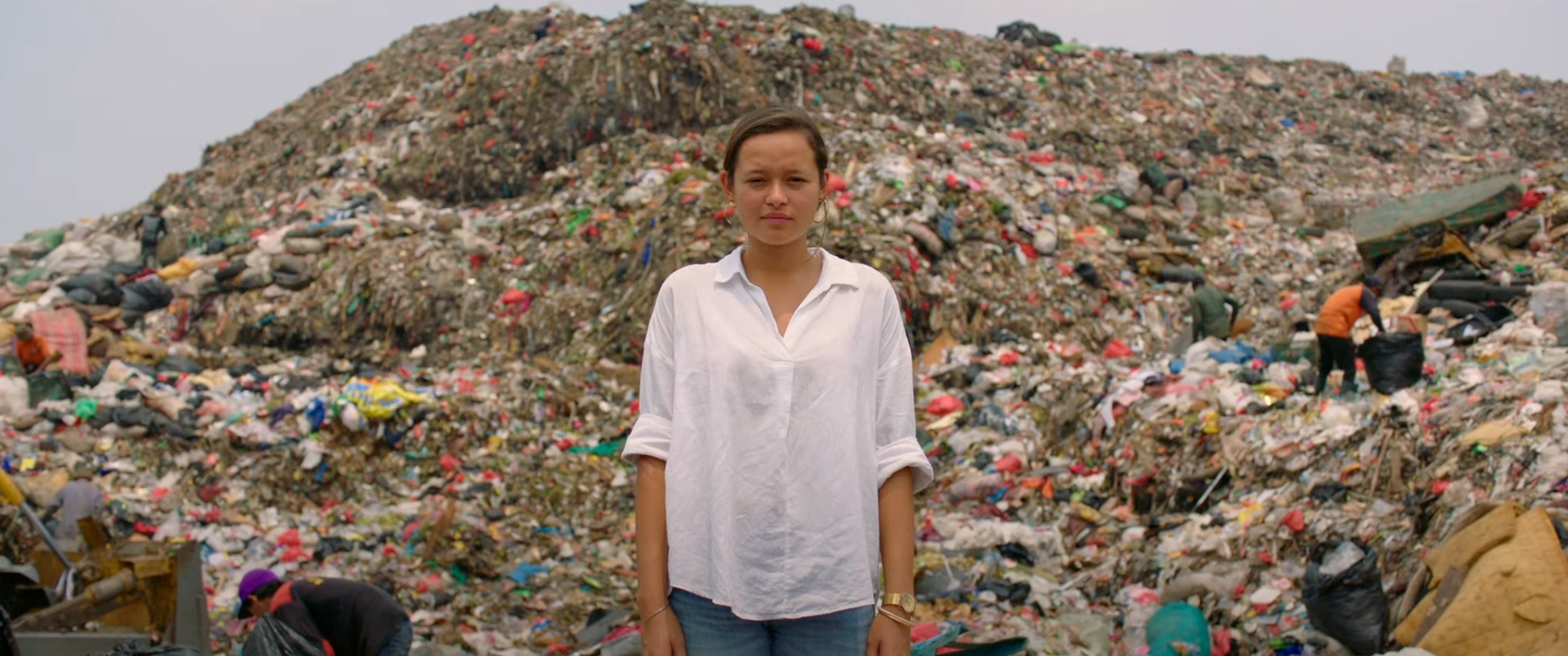
With this film, Melati wants to convey to us not only how important and rewarding it is, but also how "non-niche", full of enthusiasm and positivity the work of a social worker can be. Meet French writer, producer and entrepreneur Flore Vasseur, a former snowboard champion, born in 1973, and an active and recognised filmmaker in the documentary world thanks to the 2017 film Meeting Snowden.
Flore made her directorial debut in 2009 with a work on Melati's ropes, a Ted entitled 18 minutes pour changer le monde. Flore and Melati co-wrote this Bigger than us, co-produced by actress Marion Cotillard, which was presented at the 74th Cannes Film Festival in the Cinema for the climate section. It is a film about Melati's encounter with other young activists, who together are trying 'in their own small way' to change the reality of their area, engaging both on the climate and social side. They all started 'protesting and building' at a very young age something new and more functional to 'fix the world', starting from the observation of the closest needs of the people they were in contact with.
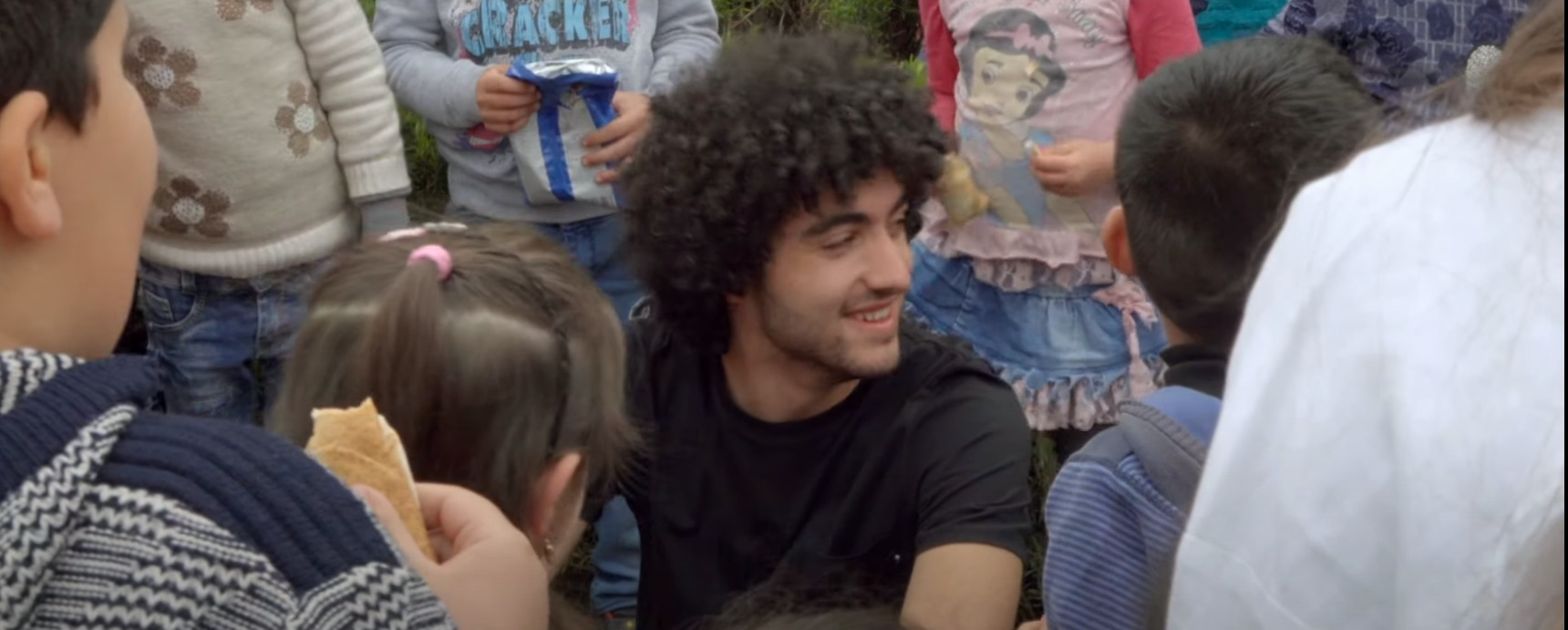
Mohamed lives in Lebanon, fled Syria when he was only 12 years old and has now built a school for Syrian children. 58% of Syrian refugees in Lebanon are children, and like Mohamed they have often found themselves living alone in camps in makeshift shelters after being 'uprooted' from their homeland, losing all sense of time and purpose. Many children before arriving in Lebanon have also been soldiers or victims of violence, they need to 'forget and become children again' or they will end up in the meshes of the underworld. Mohammed, a bit like an older brother, tried to give them a voice, a place to return to to call 'family' and the dignity that every person should enjoy, starting with the right to education. Starting with 2 volunteers and 4 students, they have grown to 150 children, also finding support from local volunteers and the media. Mohamed with Melati's help would like those children now to feel part of something bigger than the Lebanese people who 'adopted' them: true citizens of the world.
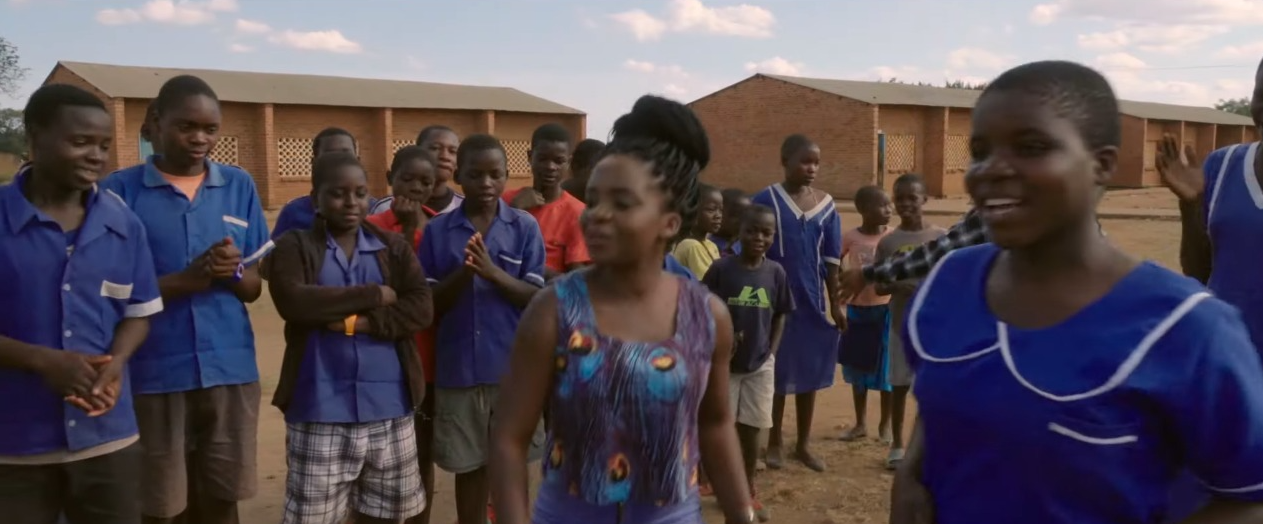
Melati's journey continues with Melody to Malawi, where 42% of girls get married when they are under 18. When they are pregnant they drop out of school and this is not uncommon, as they traditionally marry at the age of 11 in arranged marriages that provide an important and often indispensable source of income for the families. It also happened to Melody's sister, who by tradition before marriage was taken to 'initiation camps', which girls and boys enter around the age of 10 to 'become adults'. Here, boys are taught the correct way to subjugate women, and women are taught never to rebel against any kind of abuse, in effect renouncing a life other than that of mother and housewife. Melody founded a 'girls' club' to combat school drop-outs. The girls meet to share expensive school books, talk about their personal problems and travel together on the journey from the village to school, where it is unfortunately not uncommon to be sexually abused. Melody, supported for her efforts by the families in the community, has succeeded in her own small way in getting the initiation camps in her area closed down, and from here it seems that something is also changing politically, with the advent of the first female tribal leaders. Melati accompanies Wendy to her first meeting with the president of Malawi.
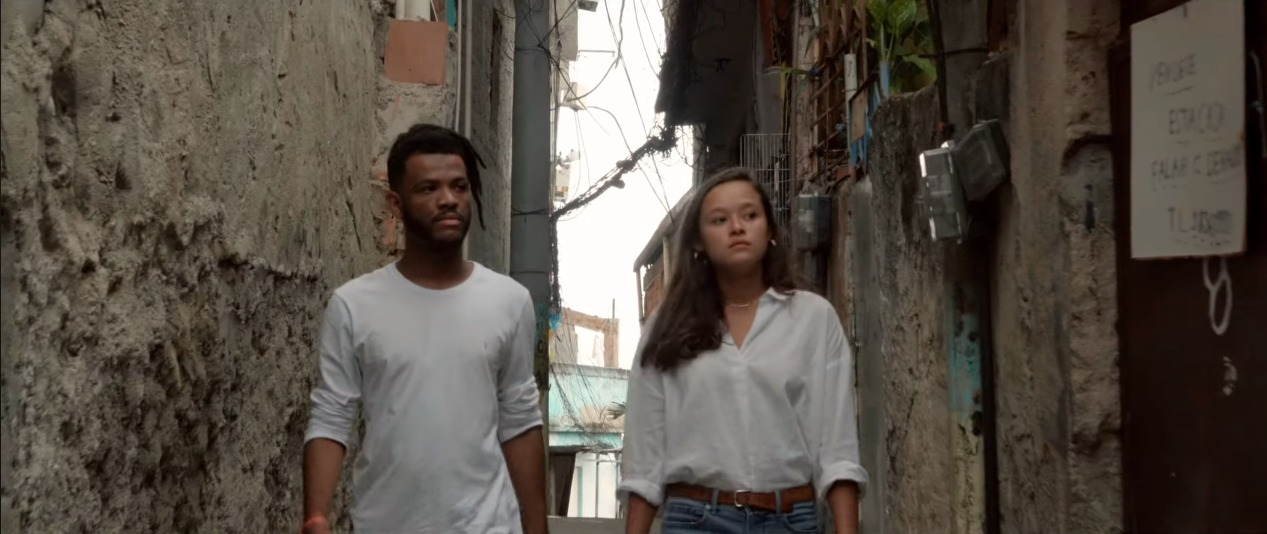
There is also an air of change in Brazil, where on the next stage Melati meets René, who grew up in constant danger of being caught up in a shootout between police and criminals on his way from home to school in Rio's Favelas. In 2011, unbeknownst to the rest of the world, a real civil war took place there. The Favelas were isolated and segregated almost into trenches, with buses and public transport set on fire to prevent access to roads and communications: no one could leave their homes even for food and the TV provided no real account of the events.
From a Twitter group run by local kids, René and his friends thus created the 'community newspaper', a direct source on the ground that recounts the reality of that conflict directly from the voices of eyewitnesses, area by area, while also providing useful information to help and coordinate citizenship. René's social becomes an instrument of defence, information and change: not only with the timely reporting of the facts, but also by recounting a possible life for the boys other than the common dream of 'becoming drug dealers'. Thus, sports, dance schools and cultural initiatives are given a voice. The newspaper grew and continued as a free and independent experience until today, welcoming more and more young people into its ranks and also becoming a megaphone for public events in support of active policies. René's 'social network', with its new way of doing journalism, thus hooks up with Melati's environmentalist network, coordinating to create climate protection events to bring to the attention of politicians.
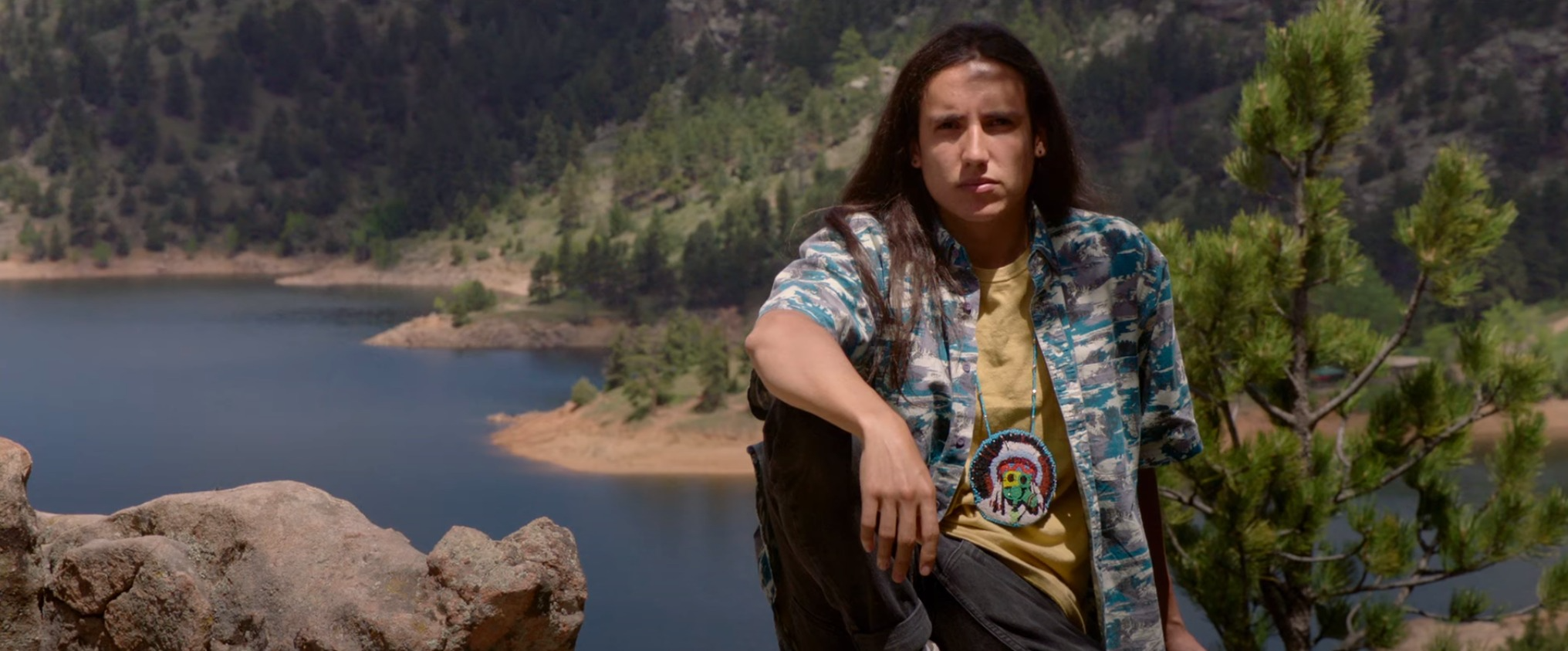
In the United States 'of the Old West', the descendant of the Native American Xiuhtezcatl uses rap to denounce the extraction of natural gas through the practice of 'fracking', which makes the air unbreathable for those living on the land. To 'show sensitivity', fracking companies have built schools for the poorest people right on the edge of their companies' mephitic fumes, places destined to remain deserted as they are unlivable. His is a fight against multinational corporations that seems to have been lost at the start, but that does not mean he is giving up concerts whose proceeds go to support the environmentalist cause. He feels that it is in the spirit of a Native American to care about the preservation of his world.
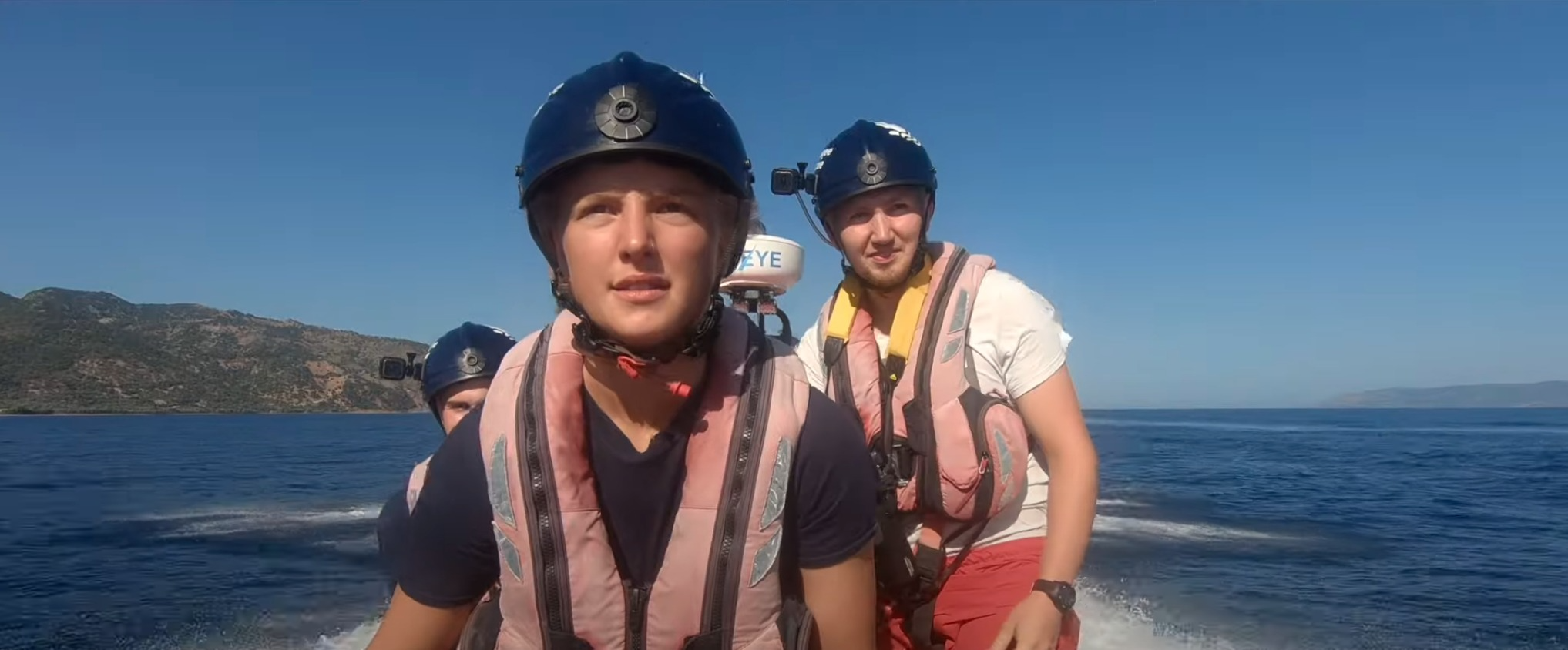
On the Greek island of Lesbos, Melati meets Rune and the boys who are involved in the rescue of migrants at sea. In addition to the rubber dinghies and small boats with which these 'journeys of hope' are increasingly organised by the underworld, the use of fake life jackets is denounced, which inside instead of floating material contain a kind of bubble wrap for packing packages. When human traffickers flee and migrants are left at sea with their dinghies under the storm waiting for rescue, they rely on these vests to survive, which eventually sink. The rescuers have created a veritable mountain using only the broken life jackets recovered at sea. Little can be done without a coordinated international effort in such cases, but the young people of Lesvos who rush to the rescue of shipwrecked people every day feel it is the right thing to do, something 'natural' to their culture as sailors.
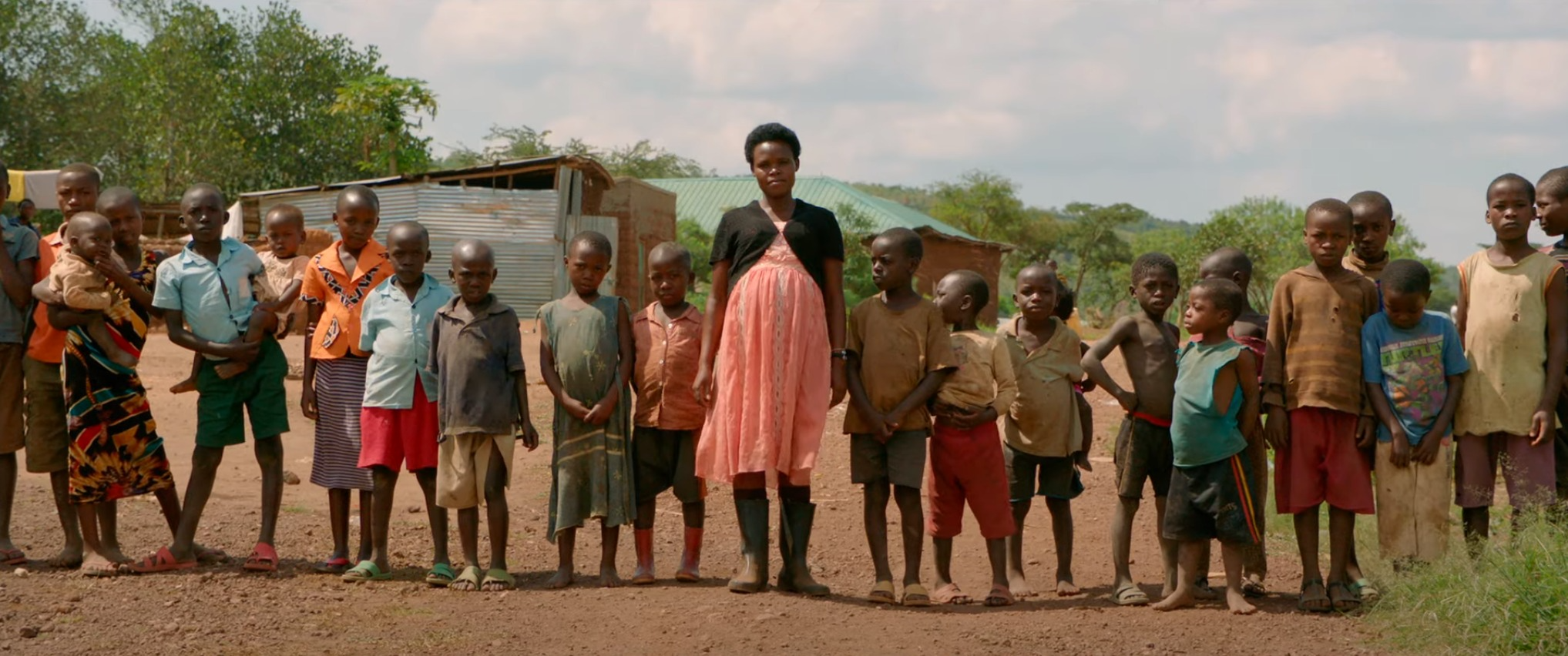
Winnie in Uganda, on the other hand, is trying to integrate the people who are increasingly arriving from the coast as migrants with the agricultural needs of her territory. In her country it is usually women who take care of the work of the land, but with the arrival of these new forces a new synergy is being created, which if supported by environmentalist policies could take the increasingly automated exploitation of their land away from the multinationals, in favour of a more sustainable and less invasive management of the resources linked to agriculture. The key for Winnie is to support, precisely through the coordination of Ugandan women, the creation of 'refugee communities' gathered by individual ethnic groups, who in addition to a job are thus offered a school and a peaceful place to live integrated into the territory. With such an increasingly qualified and integrated workforce, the land could offer products of the highest quality for export to the world.
There are those who save their neighbour's life or care for the environment as if it were something written in their DNA, like the children of Greek sailors or Native Americans. There are those who 'by vocation' feel they must subvert the most unfair rules of tradition or take the place of a state that either ignores to address people's problems or 'cannot do it'. But Melati is like telling us that behind every social problem there is almost always an environmental problem. Everything is connected.
The alternative is the construction of new industries and new slaves, the perpetuation of both social injustice and plastic. Heaps and heaps of plastic that become the grotesque Dantesque landscape of the Jakarta landfill, one of the largest and most frightening in the world. An ecological monster that is contributing day by day to swallowing up the whole city of Melati, which is gradually on its way to being submerged by rising waters like a new Atlantis. Defended only by concrete retaining walls no higher than one metre, the battle is already lost.
The eco-monster is an authentic monument to the (self)destruction of nature and man, and becomes more than a thousand words a warning, an image to imprint in your head before going to sleep just to remind yourself that it exists and can still expand until it swallows everything. For Melati, we live completely naked in front of what will happen: we are walking suspended over the abyss waiting for a change of perspective in the relationship between man and the environment that if it does not happen will take us further and further to the end. But its support network can work, young people can do something, get in touch with each other, carry out projects by listening to the needs of the territory and the forces of voluntary work, perhaps even try to shake up governments with their contagious enthusiasm.
Melati and Flore's documentary is an opportunity to tell today's young people about realities they may not even imagine, taking them to incredible places that do not even exist in video games such as the Jakarta landfill and the mountain of broken life jackets in Lesbos, but also taking them to meet people of their own age who are opposing this kind of future. We have always talked about the environment throughout history and perhaps we have always done so in the wrong language: often accusing our political counterparts of doing too little without responding with something concrete, often looking the other way when the problems go beyond our own landings, often waving flags only when it might be an excuse to skip school, often crying and then three minutes later forgetting all about it. Bigger than Us talks about the concrete opportunities that can be found around the world to change it for the better, if someone really feels like helping their neighbour and the planet. It provides concrete examples where sacrosanct protest has been followed by projects, interventions, small revolutions. It is a film that invites the most receptive audience to participate in a network of help, even providing some useful addresses where to get information, in case you want to do something but 'don't know what'. It is a good way in which cinema still allows us to look at a possible future.
This is why viewing Bigger than Us is absolutely recommended for all schools, especially those with a humanistic orientation, but not only. Shot with high-resolution digital cameras, the film takes us around the world, amidst some very evocative landscape views, with a particular predilection for warm, enveloping photography. The simple and direct language with which the various themes are addressed helps even a middle school audience understand the issues. The passion and 'sunny disposition' of the performers in talking about their projects and goals is contagious. Bigger than us is an excellent didactic tool, almost a 'motivational film', perhaps with the problem for some of portraying young people as 'too good to be true', too distant from how they 'imagine young people today'. However, anyone who believes that cinema can still do something concrete today to stir consciences towards social and environmental causes really should not miss this film.
The photos have been taken from individual images from the trailer, available for free on YouTube or other sites.
[FR]
Melati Wijsen, 23 ans, d'origine indonésienne et allemande. Un visage angélique encadrant un sourire infini et des yeux brillants, un port raffiné, des manières douces, une voix cristalline avec un grand désir de raconter et de partager des expériences de vie, surtout pour "motiver les gens" à changer le monde. Elle pourrait concourir pour Miss Univers et gagner facilement, se lancer dans une carrière de chanteuse ou d'actrice ou faire la publicité d'un parfum, mais Melati est l'une des principales activistes climatiques d'aujourd'hui et n'est pas moins célèbre pour cela qu'une rock star. Elle a commencé à l'âge de 11 ans avec sa soeur pour sensibiliser au problème du recyclage du plastique et n'a jamais cessé depuis. Alors que Greta est maintenant encore plus impliquée dans les "voies diplomatiques" avec les grands de la Terre, elle exprime son désarroi de plus en plus pragmatique face à l'immobilisme des gouvernements et des "adultes en général" à entreprendre toute "révolution" sociale ou environnementale, aussi petite soit-elle (mais Greta est encore jeune et son combat ne fait que commencer), Melati contourne complètement le monde des adultes et insiste fortement sur la construction d'un meilleur réseau de soutien pour la planète, créé par le seul enthousiasme des jeunes, aujourd'hui aidés non seulement par la solidarité mais aussi par la publicité et la résonance que les canaux sociaux sont capables de générer.

Avec ce film, Melati veut nous faire comprendre non seulement à quel point c'est important et gratifiant, mais aussi à quel point le travail d'un travailleur social peut être "non-niche", plein d'enthousiasme et de positivité. Rencontrez la scénariste, productrice et entrepreneuse française Flore Vasseur, ancienne championne de snowboard, née en 1973, et réalisatrice active et reconnue dans le monde du documentaire grâce au film Meeting Snowden, sorti en 2017.
Flore a fait ses débuts de réalisatrice en 2009 avec un travail sur les cordes de Melati, un Ted intitulé 18 minutes pour changer le monde. Flore et Melati ont coécrit ce "Bigger than us", coproduit par l'actrice Marion Cotillard, qui a été présenté au 74e Festival de Cannes dans la section Cinéma pour le climat. Ce film raconte la rencontre de Melati avec d'autres jeunes activistes qui, ensemble, tentent "à leur manière" de changer la réalité de leur région, en s'engageant à la fois sur le plan climatique et sur le plan social. Ils ont tous commencé très jeunes à protester et à construire quelque chose de nouveau et de plus fonctionnel pour "réparer le monde", en partant de l'observation des besoins les plus proches des personnes avec lesquelles ils étaient en contact.

Mohamed vit au Liban, a fui la Syrie alors qu'il n'avait que 12 ans et a maintenant construit une école pour les enfants syriens. 58 % des réfugiés syriens au Liban sont des enfants et, comme Mohamed, ils se sont souvent retrouvés à vivre seuls dans des camps, dans des abris de fortune, après avoir été "déracinés" de leur patrie, perdant toute notion de temps et de but. Avant d'arriver au Liban, de nombreux enfants ont été soldats ou victimes de violences. Ils doivent "oublier et redevenir des enfants", faute de quoi ils finiront dans les mailles du filet de la pègre. Mohammed, un peu comme un grand frère, a essayé de leur donner une voix, un endroit où retourner pour appeler la "famille" et la dignité dont chaque personne devrait jouir, en commençant par le droit à l'éducation. Avec deux volontaires et quatre étudiants au départ, l'association s'est agrandie et compte aujourd'hui 150 enfants, tout en bénéficiant du soutien de volontaires locaux et des médias. Mohamed, avec l'aide de Melati, aimerait que ces enfants sentent qu'ils font partie de quelque chose de plus grand que le peuple libanais qui les a "adoptés" : de véritables citoyens du monde.

Le voyage de Melati se poursuit avec Melody au Malawi, où 42 % des filles se marient avant l'âge de 18 ans. Lorsqu'elles sont enceintes, elles abandonnent l'école, ce qui n'est pas rare, car elles se marient traditionnellement à l'âge de 11 ans dans le cadre de mariages arrangés qui constituent une source de revenus importante et souvent indispensable pour les familles. C'est également ce qui est arrivé à la soeur de Melody qui, par tradition, a été emmenée avant son mariage dans des "camps d'initiation" où les filles et les garçons entrent vers l'âge de 10 ans pour "devenir adultes". Les garçons y apprennent la bonne manière de soumettre les femmes, et les femmes apprennent à ne jamais se rebeller contre toute forme d'abus, renonçant de fait à une vie autre que celle de mère et de femme au foyer. Melody a fondé un "club de filles" pour lutter contre l'abandon scolaire. Les filles se réunissent pour partager des livres scolaires coûteux, parler de leurs problèmes personnels et faire ensemble le trajet entre le village et l'école, où il n'est malheureusement pas rare d'être victime d'abus sexuels. Melody, soutenue dans ses efforts par les familles de la communauté, a réussi, à sa manière, à faire fermer les camps d'initiation de